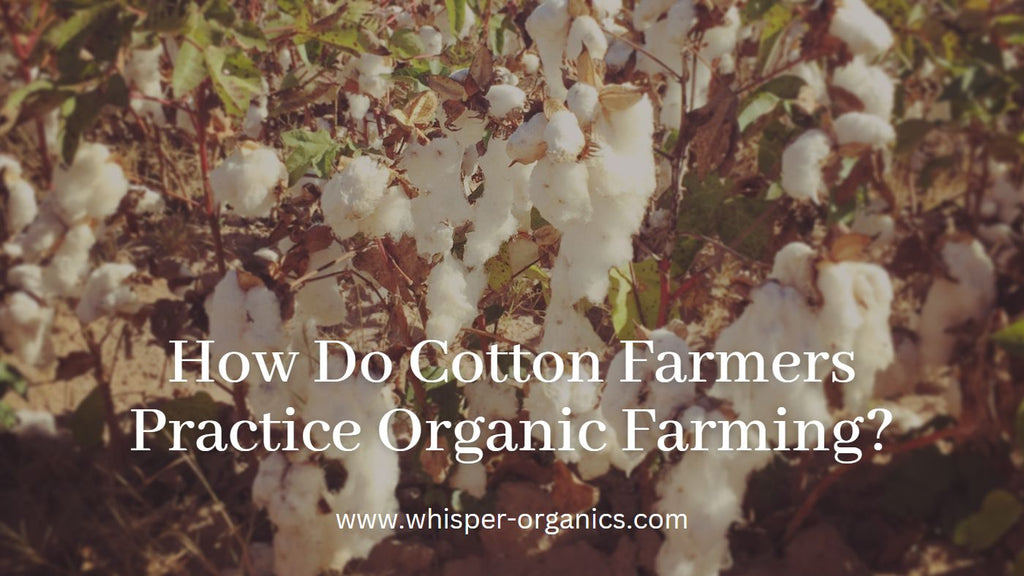
How do Cotton Farmers Practice Organic Farming?
Many cotton farmers today are adopting farming practices that produce high-quality and environment-friendly cotton. Welcome to organic cotton farming. This is a holistic approach that centers on natural and sustainable farming techniques. The aim is to keep up with market demands for cotton without continuing the harmful practices of traditional cotton farming.
But how do cotton farmers practice organic farming? How does a Global Organic Textile Standard (GOTS) certification, like the one you see on Whisper-Organics bedding, ensure the quality of organic cotton products?
What is organic cotton farming?
Organic cotton farming involves different techniques that include promoting soil health and biodiversity, and the use of natural pest control.
One of the key components of organic cotton farming is using natural fertilizers to improve soil fertility and structure, such as compost and animal manure. These natural fertilizers carry essential nutrients that promote plant growth and help build pest- and disease-resistant soil and crop.
Organic farming is basically using the same natural methods discovered by farmers before synthetic fertilizers were invented.
Cotton farmers who use organic farming take advantage of crop rotation strategies to improve their soil health and reduce incidences of soil erosion. This includes alternating crops in a field over a period of time, which is an effective way to break pest cycles and address soil-borne diseases.
Organic cotton farmers would also grow cover crops, such as legumes and grasses, to prevent soil erosion, combat the growth of weeds, and provide natural pest control.
To control pests, organic farmers utilize the help of natural insect predators and companion planting. For instance, taking care of fowls that prey on bugs and worms is a perfect pest-control solution that reduces the need for harmful pesticides.
Certifying an organic farm
Since there is a growing demand in the market today for organic products, many bedding manufacturers position their products as organic. But how will you know if their claim is genuine?
Legit organic cotton farmers seek GOTS certification. The Global Organic Textile Standard is the world's leading standard for organic textiles and covers every aspect of textile production, from planting, harvesting, manufacturing, and packaging.
When you see a GOTS certification label on a product, like the one we have on Whisper-Organics bedding, you are sure it is made from at least 95% organic cotton fiber and that the processes involved in its production are environmentally safe and ethical to all farming stakeholders.

Getting a GOTS certification is not easy. Cotton farmers are required to follow strict requirements for organic farming practices and social criteria, which include fair labor practices and safe labor conditions for workers. This makes genuine organic cotton products quite pricier than those made from regular cotton.
CONCLUSION
Overall, organic cotton farming is a holistic approach to making cotton production environment-friendly and socially responsible. Farmers emphasize natural and sustainable farming practices, so they can conserve the soil and reduce the use of harmful chemicals.
To know if an organic cotton product is genuine, look for the GOTS certification. In case you're wondering about our bedding, here's our GOTS certification:
This assures you the product was made in an environmentally and socially responsible manner. At the same time, it guarantees you the bedding is safe for your health for a long time.
Support organic cotton farming by buying GOTS-certified products.





